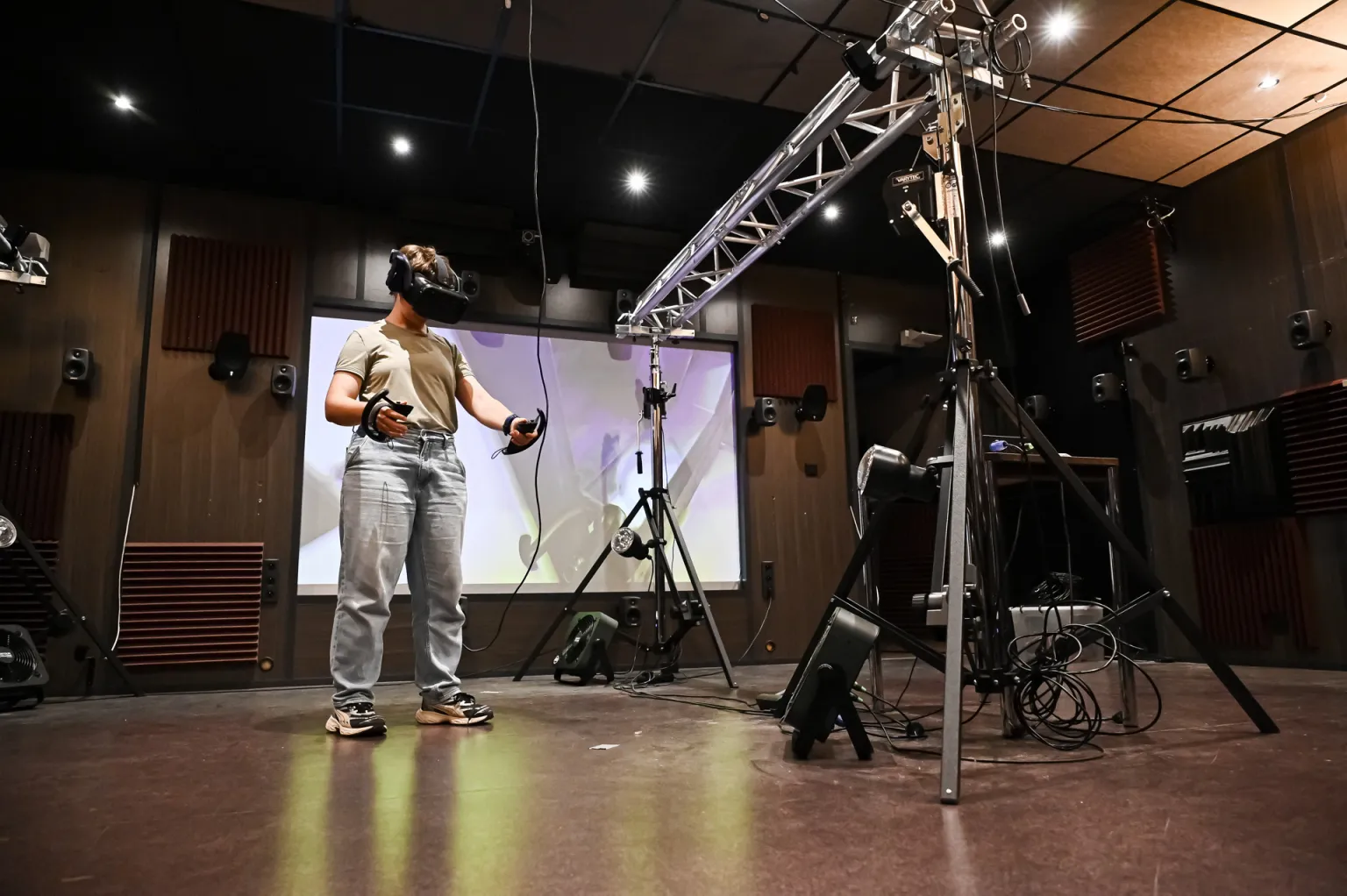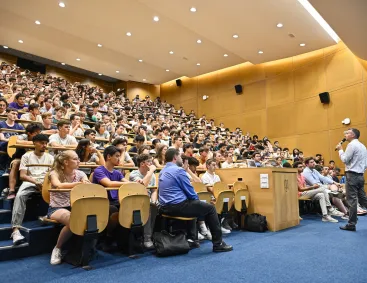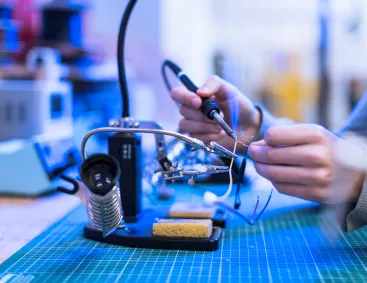Scientific excellence and innovative teaching methods
Students at Centrale Lyon benefit from high-level scientific and technical training, enriched by an innovative pedagogy that combines theory and practice. The pedagogical approach is based on several axes, enabling future engineers to prepare effectively for the professional world:
- Practical and directed laboratory work: theoretical concepts are directly applied through concrete experimentation.
- Interdisciplinary projects: this work encourages collaboration and analysis of complex problems, enabling innovative solutions to be developed.
- Skills-based approach: students develop both technical and behavioral skills, essential to their success in the professional world.
- Company internships: from the very first years, students are immersed in professional environments to put their academic knowledge into practice.
Thanks to this diversity of approaches, students master the engineering sciences while developing the human, social and professional skills necessary for their professional development.
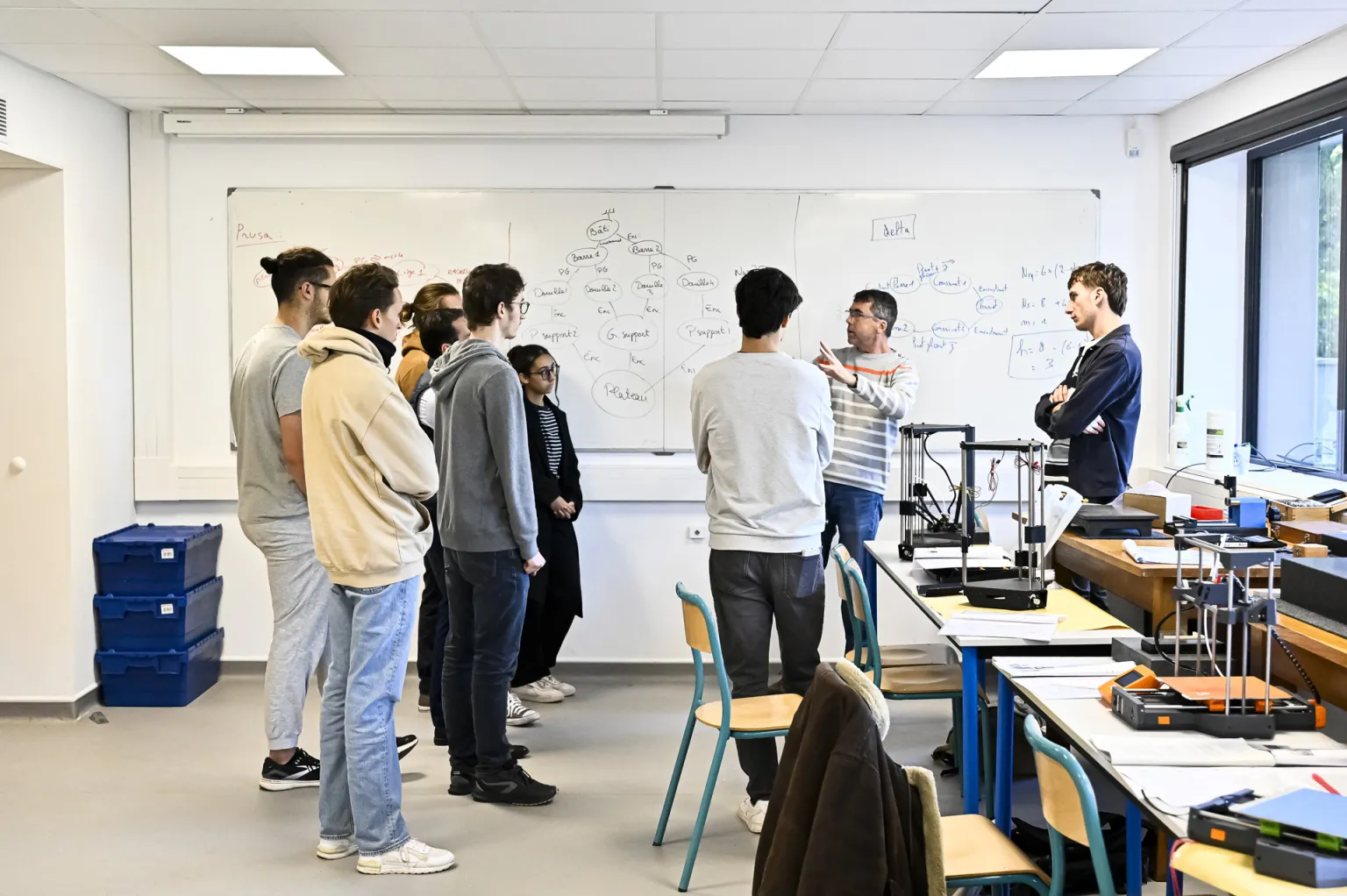
Flexible career paths
Centrale Lyon's programs offer great flexibility, enabling each student to tailor his or her path to suit his or her goals. Whether through a generalist engineering training or diplôme national de master, curricula are designed to adapt to career aspirations, whether they are heading towards research, entrepreneurship or industry.
A demanding, inclusive approach
The Centrale Lyon training policy is based on two fundamental principles: academic requirement and inclusion.
The requirement guarantees the excellence of the training and the quality of the diplomas awarded. Inclusion, meanwhile, promotes profile diversity and equal opportunity through personalized support enabling a path to success for every student.
Programs balance fundamental sciences, engineering sciences and human and social sciences, offering students a global understanding of technical and societal issues.
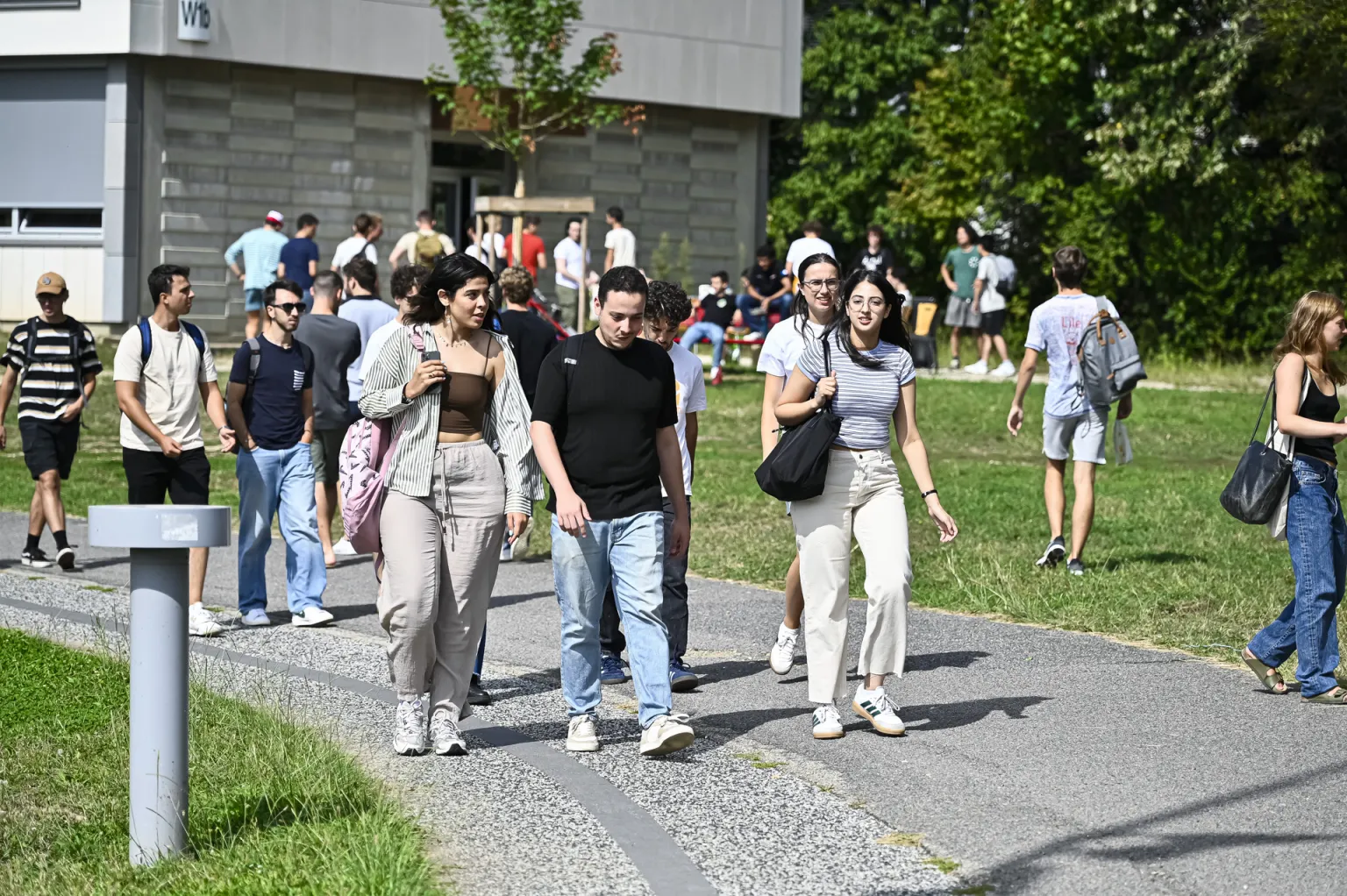
Training linked to research and social issues
Education at Centrale Lyon is intrinsically linked to leading-edge scientific research. More than 80% of the teaching staff are also researchers, enabling students to be in direct contact with the latest technological advances.
Alongside this, the programs prepare future engineers to become responsible leaders, capable of proposing innovative solutions to meet the great contemporary challenges, particularly in terms of environmental sustainability and energy transition.
